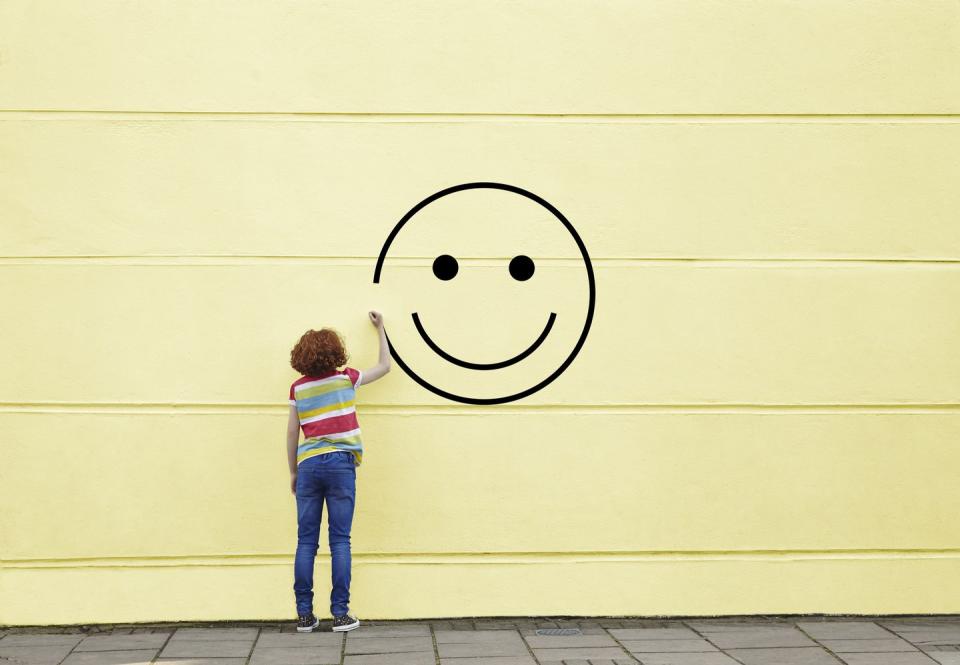These are the signs you're getting boundaries wrong

Setting boundaries for yourself, and those you interact with on a regular basis, is undoubtedly the key to having happy and healthy relationships in all aspects of your life.
After all, Clara Amfo credits creating non-negotiable, self-imposed guidelines on what she will, and won't, put up with, with ending a 'good five years of being really unkind' to herself.
What are boundaries?
Boundaries are essentially rules you lay out regarding how you want to be treated and what you will and won't tolerate.
'Boundaries are the limits we set for ourselves... rules that govern our lives and tell others what is, or isn't, acceptable,' Sharnade George, therapist and founder of Cultureminds therapy platform, explains.
Why are boundaries so important? And how do you know if you're getting boundaries wrong?
'Living a boundary-less life causes conflict and results in an unhealthy relationship with yourself and others,' George says, adding that without boundaries, people around you won't know how to treat you or how to act around you, which in turn will cause to feel 'disrespected' and 'taken advantage of.' This will have a negative effect on your mental health, causing low self-esteem and 'feelings of low self-worth.'
On the flip side, setting healthy, firm boundaries can result in you feeling 'safe and secure in life,' she says, meaning you have more time and mental energy to do things which will 'nourish and bring joy.'
'Most importantly your relationship with others will improve' because being clear with people from the beginning will result in you being able to 'show more compassion in your relationships with others.'
Why do some people struggle with setting boundaries?
'It's very common for people struggle with boundaries, which is often due to the fear of judgment from others,' George explains. But they are imperative if you want to take responsibility for yourself and how you want to be treated.
Here, she reveals exactly how to implement healthy boundaries into your everyday life and reap the benefits of happier, healthier relationships:
How to implement healthy boundaries
Get to know yourself
Understanding what matters to you is very crucial in being able to identify what your boundaries are. This takes a lot of self-development work, which includes knowing who you are, your values, beliefs, norms, emotional triggers and what is important to you in life.
Alternatively, you can think about when you have you allowed someone to violate you and how this made you feel.
Once you have a better understanding of who you are, and how you want to feel and be treated, you can begin to write a list of your boundaries which are meaningful to you.

Communicate your boundaries
In all relationships, communication is key. People will not know how to treat you unless you make it clear how you want to be treated.
When communicating your boundaries, it’s important to be clear and direct; your communication should be from a place of love, and not resentment, because you're making others aware of what is important to you.
Maintain your boundaries
'Let your yes be yes, and your no be no,' is a favourite quote of mine, in regards to boundaries. Following through with your boundaries will be much easier to do when you separate yourself from other people, which is is a helpful way of maintaining them.
Once you've taken the time to create and communicate your boundaries, it's important that you remember boundaries are a form of self-respect for yourself – and an act of self-love and kindness. Maybe some people will not be accepting or OK with your boundaries, but the maintenance will only get easier once you’re in touch with your emotions and knowing that you aren't responsible for how others feel.
When boundaries are violated it's important to communicate with others about this and how this can be managed in the future. Don’t be afraid to let others know how you feel and don’t assume others will already know how you feel.
Subscribe to Red now to get the magazine delivered to your door. Red's latest issue is out now and available for purchase online and via Readly or Apple News+.
Like this article? Sign up to our newsletter to get more articles like this delivered straight to your inbox.
You Might Also Like



